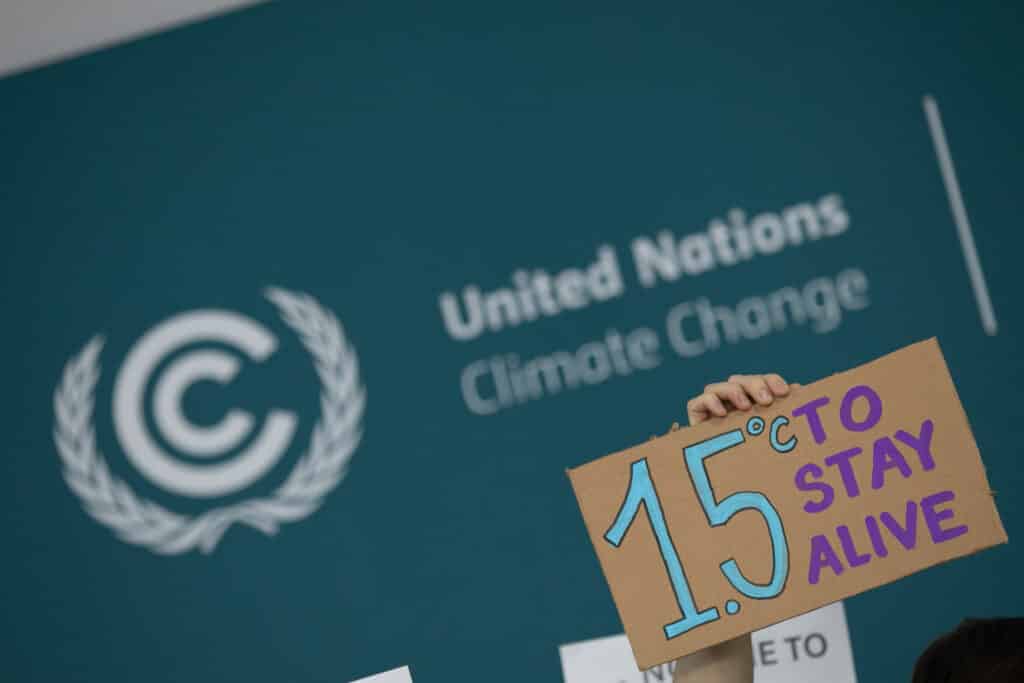
Responsible for 15% of global greenhouse gas (GHG) emissions, the transport sector is the second largest contributor to climate change, emitting some 8.4 gigatonnes of CO₂ equivalent (GtCO₂e) in 2023. According to the UNEP Emissions Gap Report 2024, transport has a mitigation potential of 4.8 GtCO2e up to 2035, considering measures that cost up to 200 USD per tCO2e. This means a 57% reduction from today’s emissions levels is possible. However, to achieve this potential, financial flows into sustainable transport would need to be three to eleven times higher than they were in 2021–2022. The climate finance gap is therefore large – and not just in the transport sector. For this reason, the New Collective Quantified Goal (NCQG) on Climate Finance was a major point of deliberation at COP29 in Baku.
Regrettably, the commitments that emerged in Baku fell far short of meeting the financing needs of developing countries. Mobilising and redirecting private finance for the transformation of the transport sector will therefore become even more important in the future.
The COP28 Global Stocktake in 2023 produced important commitments, with the global community pledging to transition away from fossil fuels, triple renewable energy capacity, double energy efficiency, and accelerate the decarbonisation of transport through diverse pathways. Nevertheless, a specific target for the rapid decarbonisation of the transport sector has yet to be adopted.
The 2015 Paris Agreement requires signatory countries create Nationally Determined Contributions (NDC) that outline their action plans for keeping global warming below 1.5°C. These NDCs, which are updated every five years, are expected to cover all sectors of the economy, including transport. The next NDC updates (3.0) are due in February 2025, prior to COP30 in Brazil. Experts are in agreement that the signatories to the Paris Agreement need to significantly ratchet up their climate ambition to align with long-term net-zero targets and avoid catastrophic climate change. Current commitments would lead to a devastating mean temperature rise of 3.1°C greatly exceeding the 1.5°C pledge made in Paris. Unfortunately, among the second generation NDCs, only 24 have mitigation targets for the transport sector (see NDC Transport Tracker by GIZ and SLOCAT).
Achieving a zero-emission transport system requires a combination of policy measures, as highlighted by the ASI approach (Avoid, Shift, Improve). Specifically, we need to:
While the ASI approach draws attention to the importance of avoiding unnecessary travel and of shifting demand to sustainable modes of transport, 60% of the NDCs focus on the “improve” category. Accordingly, looking forward, greater balance is needed, with a stronger emphasis on avoiding individual vehicle transport as a low-cost emissions-reduction strategy.
This virtual event addressed a range of topics, including NDC Commitment and Implementation in Asia and Call to action: Let’s aim at more ambitious NDCs.
The session devoted to Asia spotlighted the region’s ambition in the transport sector: Thailand’s NDC Action Plan aims to cut 45.6 million metric tons of CO₂ by 2030 through strategies such as electrification, improved urban mobility, green logistics, and increased energy efficiency. Meanwhile, Vietnam has adopted a data-driven strategy for meeting future mobility needs that relies in part on public surveys; it has also been advancing electrification through new regulatory measures, including the requirement that all new buses meet green vehicle standards from 2025 onward. Keith Camena, an urban planning expert in the Philippines, emphasised the critical role played by implementation at the subnational level: “Local governments have a unique understanding of residents’ travel needs. This positions them to take greater responsibility and accountability for achieving sustainable mobility outcomes.”
As part of the second session on NDCs, GIZ partnered with SLOCAT and WRI to discuss the pressing issue of transport-sector transformation. Benjamin Welle, Director of Integrated Transport & Innovation at WRI, stressed the importance of robust action, summarising current developments in the run up to COP29. Noting that transport emissions need to be cut in half by 2030, he highlighted the need for integrated solutions based on the ASI approach as a means of reducing GHG emissions in cities.
Nikola Medimorec, Director of Data Analysis and Research at SLOCAT, then explored the role played by transport in the second generation of NDCs. Few NDCs pursue integrated approaches for bringing about a sustainable transport sector, and only eight NDCs have specific targets for transport adaptation, Nikola explained. Following this talk, the session attendees discussed the opportunities and challenges associated with a 1.5°C-compatible transport sector as well as the importance of climate finance for transforming transport.
One key takeaway from the session was that the ambition for change needs to be significantly enhanced. In this connection, many governments still struggle to address the transport sector in an integrated manner, which is crucial given its relevance not only for the economy and the environment, but also for everyday life. The session participants agreed that countries need to better position themselves to attract the climate finance necessary to bring about sustainable mobility. They also affirmed the importance of the Avoid, Shift, and Improve (ASI) approach as a touchstone for NDC development and implementation. In recognition of this fact, GIZ has been collaborating with various partners to promote ASI policies.
Various organisations have developed NDC help guides for government on specific topics in sustainable transport:
The NDC Transport Tracker is a free online tool developed jointly by SLOCAT and GIZ with funding from Germany’s International Climate Initiative (IKI). It tracks national climate policy ambition in the transport sector, detailing every mention of transport in the NDCs and Long-term Strategies (LTS) currently available at the UNFCCC portal.